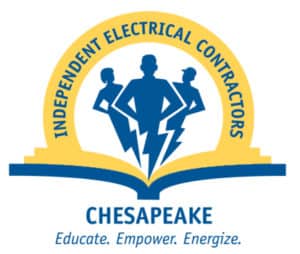Overview
Key issues this Session include COVID 19 relief for Maryland residents and Maryland businesses, police reform and accountability, legislation addressing racial equity, and clean energy legislation. Regarding the issue of clean energy proposals, IEC Chesapeake is working with the Maryland Clean Energy Center to review the myriad of green energy legislation at the state level. IEC Chesapeake is also reviewing and commenting when necessary on workforce development issues. IEC Chesapeake will be working with our business partners NFIB and ABC to address legislation that could negatively impact our members in terms of extra financial costs and regulatory burdens.
The Maryland General Assembly ends its Session on Monday, April 12, 2021.
At the Federal level, the election of President Joe Biden and a Democrat-controlled House of Representatives and Senate will create challenges for open shop employers. The U.S. Department of Labor under Secretary Martin Walsh, the former Mayor of Boston, will be sympathetic to labor union issues. Under a Biden Administration, there may be more opportunities for IEC Chesapeake members to generate more business and funding in the green energy sector.
Most recently, on Friday, February 5, the U.S. House of Representatives passed HR 447, “The National Apprenticeship Act of 2021” by a vote of 247-173. HR 447 presents a significant challenge for non-union employers by restricting access to federal funds for apprenticeship training. IEC Chesapeake supported an amendment by Republican Representative French Hill of Arkansas whose amendment sought to give open shop entities the opportunity to access federal funds for apprenticeship training. IEC Chesapeake sent a letter of support for the Hill amendment to Maryland’s House members. The Hill Amendment failed by a vote of 236-186. Nineteen House Republicans joined the Democrats in opposing the Hill Amendment while two Democrats supported the amendment. In Maryland, the sole Republican House member Andy Harris was the only member of the Maryland Delegation to support the amendment.
MARYLAND LEGISLATION OF INTEREST
House Bill 581 / Senate Bill 486 – Labor and Employment-Employment Standards During an Emergency (Maryland Essential Workers’ Protection Act): HB581 is sponsored by House Economic Matters Chair Dereck Davis and the bill had a hearing on February 5th in the House Economic Matters Committee. In the Senate, SB 486 is sponsored by Senator Malcolm Augustine and a hearing is scheduled for SB 486 on February 11th in the Senate Finance Committee. Both of these bills seek to provide an additional $3 per hour pay for essential workers who earn less than $100,000 during an emergency, which is broadly defined. The problem with these bills is that the definition of essential worker is very broadly defined having the effect of applying to most workers. These bills mandate new, burdensome requirements of the employer which will be costly. Employers also must provide safe working conditions including sufficient Personal Protection Equipment (PPE) at no cost to employees. Employers must also take proactive steps to minimize the transmission of an infectious disease contracted by one of their employees. Employers must make available 3 days of paid bereavement leave and 14 additional days of paid health leave for use during a State of Emergency. An employer is required to submit an annual health emergency preparedness plan to the Maryland Emergency Management Agency (MEMA). Violations of this proposed legislation could result in fines up to $1,000. There also employer requirements to pay for testing during a declared emergency and assist in paying for health care coverage. An employee has up to two years to seek the additional benefits owed during an emergency. Employers are also required to pay reasonable attorneys’ fees for employees who prevail in an action against an employer associated with an emergency.
This legislation has generated tremendous opposition from nearly every business sector in Maryland.
House Bill 1262 / Senate Bill 762 – Maryland Electricians Revisions Act: HB 1262 is sponsored by Delegate Kevin Hornberger and SB 762 is sponsored Senator Cory McCray. These bills seek to create a statewide journeyperson electrician license. IEC Chesapeake has been the leading voice in seeking this journeyperson electrician license. After an interim working group, on which Grant Shmelzer served as a member, met in the fall of 2020, their report formed the basis of this year’s legislation.
The 2021 legislation has sought to address the concerns of local government and local electrical boards. The legislation would allow licensing reciprocity with neighboring jurisdiction and enhance consumer protections. Sticking points in past years have been how to address the licensing of low voltage electrical workers. The intent of this year’s legislation is to create the statewide journeyperson license and the statewide apprentice license without addressing low voltage licensing. This issue will be addressed in subsequent years through separate legislation. This year’s legislation requires the Department of Labor to enact a licensing scheme for low voltage workers by July 1, 2024 if it is not accomplished through legislation.
House Bill 327 – State Finance and Procurement –Retainage Proceeds: HB327 is sponsored by Delegate Chris Adams and a hearing is scheduled for Thursday, February 11 in the House Health and Government Operations Committee. HR 327 would require a unit of government or contractor to pay undisputed retention proceeds within 90 days after the substantial completion of a project. This legislation would benefit contractors with cash flows and guarantee a more speedy payment process.
IEC Chesapeake will submit a Letter of Support of House Bill 327 for the hearing.
WASHINGTON DC COUNCIL LEGISLATION OF INTEREST
B24-0042 – Apprenticeship Procurement Incentive Amendment Act of 2021: B24-0042 is sponsored by Council Members Robert White, Janeese Lewis George, Brianne Nadeau, Trayon White, and Brooke Pinto and was introduced on January 25, 2021. On February 2, the bill was referred to the Committee on Labor and Workforce Development and the Committee on Government Operations and Facilities. No hearing has been scheduled. The bill seeks to give prime contractors 3% or 3 points advantage on their bids if they register an apprenticeship program with the District of Columbia and agree that 70% of the apprenticeship hours performed are done so by District of Columbia residents.
CONTACT INFORMATION
Kevin O’Keeffe
[email protected]
(410) 382-7844

